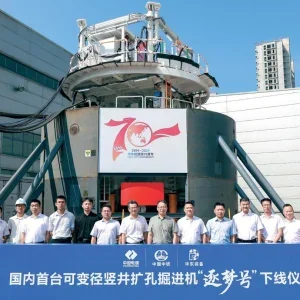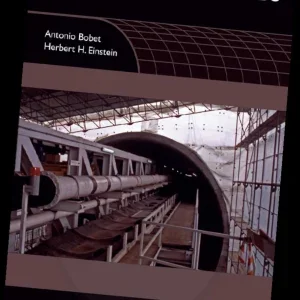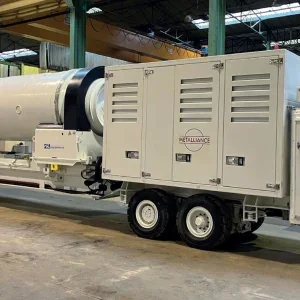Entrants must submit an original paper relating to any aspect of tunneling which they consider will be of interest to those in the tunneling industry. The papers will be reviewed by the BTS, and authors of selected papers will be invited to make an oral presentation to the BTS meeting on Thursday 21 April 2022.
PRIZES
The winner will receive two tickets for the Society’s Annual Dinner in May 2022 where he/she will be presented with a copy of the BTS 50th Anniversary book, a certificate, and a cheque for £500 (US$665).
Finalists who are selected to present will each receive £100 (US$133); all remaining entrants who submitted a paper to an approved standard will get a cheque for £50 (US$66).
Papers of the winner and finalists will be published in Tunnels & Tunnelling International. The Editors reserve the right to condense papers. Those papers not selected for the final presentation may be published in the Proceedings of the Institution of Civil Engineers (ICE).
All entrants must submit their papers by email only to bts@britishtunnelling.com to be received no later than 11 February 2022.
THE HARDING PRIZE RULES
1. The competition is open to all tunneling engineers who were aged 33 or under at the end of the previous year.
2. Papers must be written, submitted and presented by an individual rather than a team.
3. Papers can be on any topic dealing with tunnel design, construction or consultancy considered of interest to the tunneling industry. This may also include the development of a new piece of equipment, or research. The aim of the competition is to encourage young tunnel engineers to write about work in which they are involved and focus on their personal involvement and contribution.
4. Papers must be a minimum of 1,500 words and a maximum of 5,000 words and not exceed 10 pages in total, including titles, captions and references, and should be submitted in Adobe PDF format. The word count must be stated on the submission. Text should be in a font size not smaller than 11pt. Papers not meeting the above criteria will not be accepted.
5. In a separate document, entrants must also submit a brief CV indicating their age, education and experience. 6. Entrants must obtain written permission to present the paper from their employer and any other interested parties, and include this with their submission.
7. Papers previously presented at BTS meetings can be entered as long as the entrant fulfils the age requirement.
8. A panel of selected BTS members will examine the finalists’ papers and will typically select up to three which their authors will present at the competition. The number of finalists will be at the discretion of the Judging Panel. The presentation will take place at the April BTS Meeting.
9. Some entrants may be invited to re-submit papers for the following year’s competition, with the option to update the paper, if desired.
10.The presentation should be based on the written paper and accompanied by visual aids including slides and PowerPoint presentations to be no longer than 15 minutes, followed by several minutes for the presenter to answer questions from the audience. Entrants must focus on their personal contribution to the topic being presented.
11. After the presentations, the judges will retire to pick the winner, considering the written papers, the oral presentations and the way the entrants handled questions. Upon agreement between the judges, the Chairman will briefly comment on the presentations and award the Harding Prize to the winner.
12. Entries will be evaluated according to the following criteria:
CONTENT
(a)Importance of problem and technical substance of paper
(b)Grasp of subject and aptness of method and its interest to the tunneling profession
(c) The author’s personal involvement in the content of the paper
(d)Clarity of presentation and illustration of main results
(e) Details of descriptions relating to the selected topic.
PRESENTATION
(a)Clarity of delivery
(b)Aptness of approach and emphasis of findings
(c) Grasp of subject and skill in summing up
(d)Confidence and efficiency in dealing with questions
(e) Interaction with the audience.






